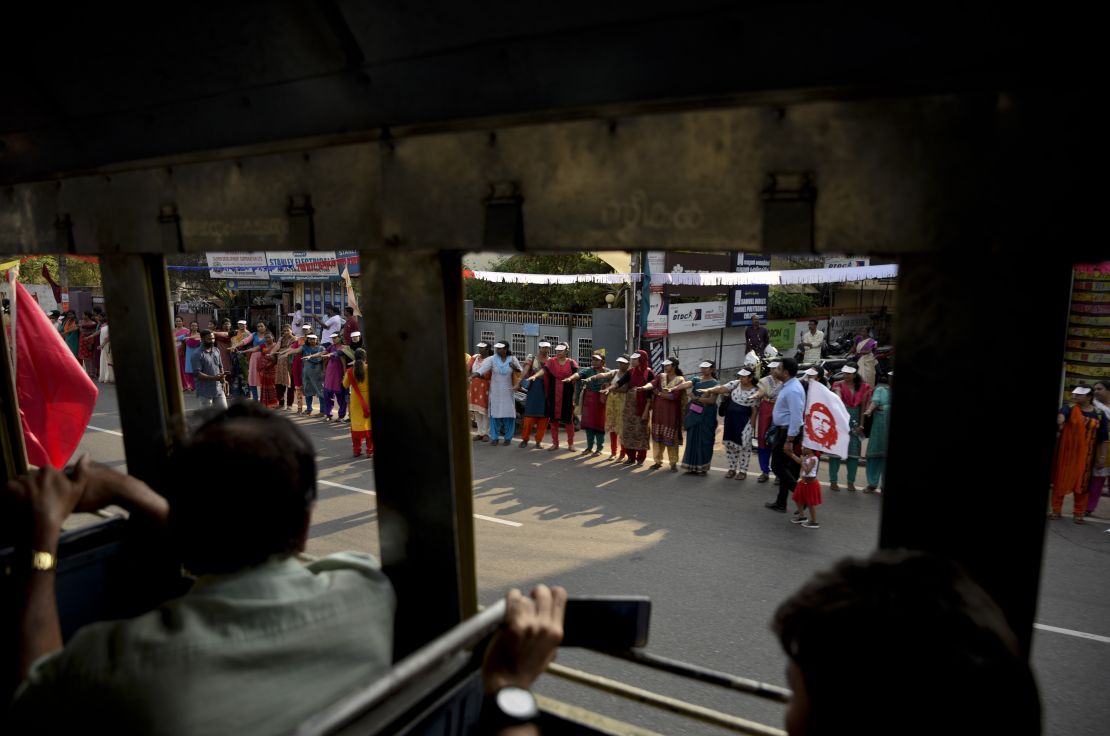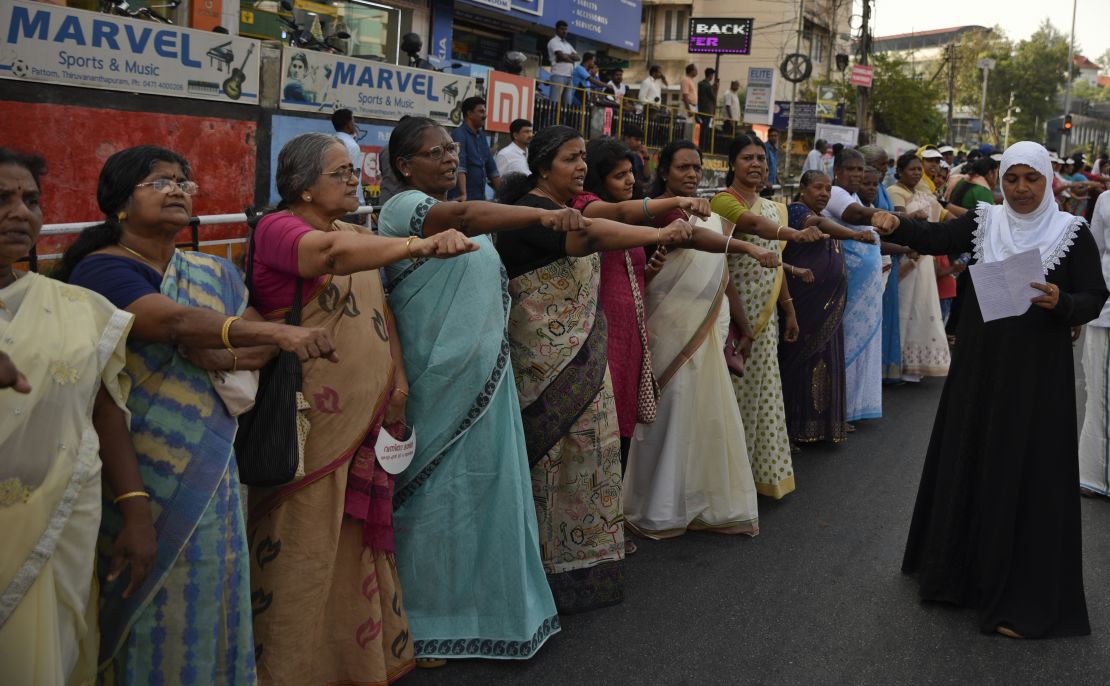Two women in the southern Indian state of Kerala made history Wednesday, defying religious conservatives to enter the Sabarimala Temple, one of Hinduism’s holiest sites.
The pair, aged 42 and 44, became the first women to access the shrine after the country’s Supreme Court overturned a centuries-old ban on women aged 10 to 50 from entering the temple in September last year, ruling it to be discriminatory and arguing that women should be able to pray at the place of their choice.
The two women made the long, uphill trek to the famous golden-roofed temple accompanied by plainclothes police officers, arriving at the site at approximately 3:45 a.m. Wednesday, Kerala police told CNN.

The temple was later closed for one hour to allow priests time to purify the site following the visit by the women.
The Sabarimala shrine, which is thought to be more than 800 years old, is considered the spiritual home of Lord Ayyappa, a Hindu god of growth. Proponents of the ban on women of menstrual age argue that since Ayyappa is considered celibate, allowing “impure” women into the temple would be disrespectful.
On Wednesday, police deployed tear gas and water cannon to separate protesters outside government buildings in Kerala’s capital, Thiruvananthapuram.
Around 100 people who are both for and against the ban were at the protest, police said. On one side were supporters of India’s ruling Bharatiya Janata Party (BJP), who want the temple access ban to remain in place. On the other were supporters of the local state government, which is run by the Communist Party of India-Marxist (CPI(M)), who are in favor of scrapping the ban.
There were no injuries among the protesters, assistant superintendent of police Pramod Kumar told CNN, adding that riot police were still at the scene on standby.
‘Women’s wall’
For months, the area around the Sabarimala Temple complex has been the scene of angry clashes, as protesters attempted to prevent the court’s decision from being enacted.
Police clamped down after September’s ruling, deploying a 1,300-strong contingent of officers to ensure the safety of any women wishing to visit the temple, but the force appeared insufficient in the face of overwhelming hostility from thousands of Hindu traditionalists.
The Supreme Court is scheduled later this month to hear petitions to revise its order.
On Tuesday, female protesters, reported to be in the millions, came out in support of women being allowed to enter the temple.
Dubbed the “women’s wall,” the protesters formed a human chain, extending an estimated 385 miles across Kerala. Local government organizers said more than five million people took part in the 15-minute peaceful protest.
“There were so many women and there wasn’t even space for women to extend arms. If they had extended their arms, the length of the wall would have increased so much that women would be falling in the Arabian Sea,” said Subhashini Ali, a member of the Indian Communist Party that governs Kerala and a participant in the protest.
Ali, who is also vice president of the All India Democratic Women’s Association, said women coming out to fight for their rights in Kerala will “change the conversation around gender.”
“There are many many forms of discrimination which are done in the name of tradition,” she said. “It is an issue important for women and democracy. “
Photos from the protests showed Pinarayi Vijayan, the chief minister of Kerala, and Health Minister KK Shylaja in attendance. Thousands of women could be seen raising hands and fists while forming the wall.

The Supreme Court judgment allowing women inside the Sabarimala Temple was the culmination of a decades-long battle to overturn the ban on women.
The prohibition was first challenged before the Kerala High Court in August 1991, with the high court ruling that only a priest could make the decision on allowing women access to the site.
Prime Minister Narendra Modi appeared to side with the conservative protesters who want to bar women from the temple. In an interview with Indian news agency ANI, Modi pointed to the fact that some temples do not allow men inside, though he did not cite specific examples.
Modi’s BJP has previously voiced opposition to the Supreme Court’s decision.
Amit Shah, the leader of the BJP, has characterized the debate as one between people of faith and an oppressive state government in Kerala.
The BJP has historically espoused Hindu-nationalist positions, and some of its more extreme candidates have been accused of being anti-Muslim.
CNN’s Swati Gupta and Bianca Britton contributed to this report.


